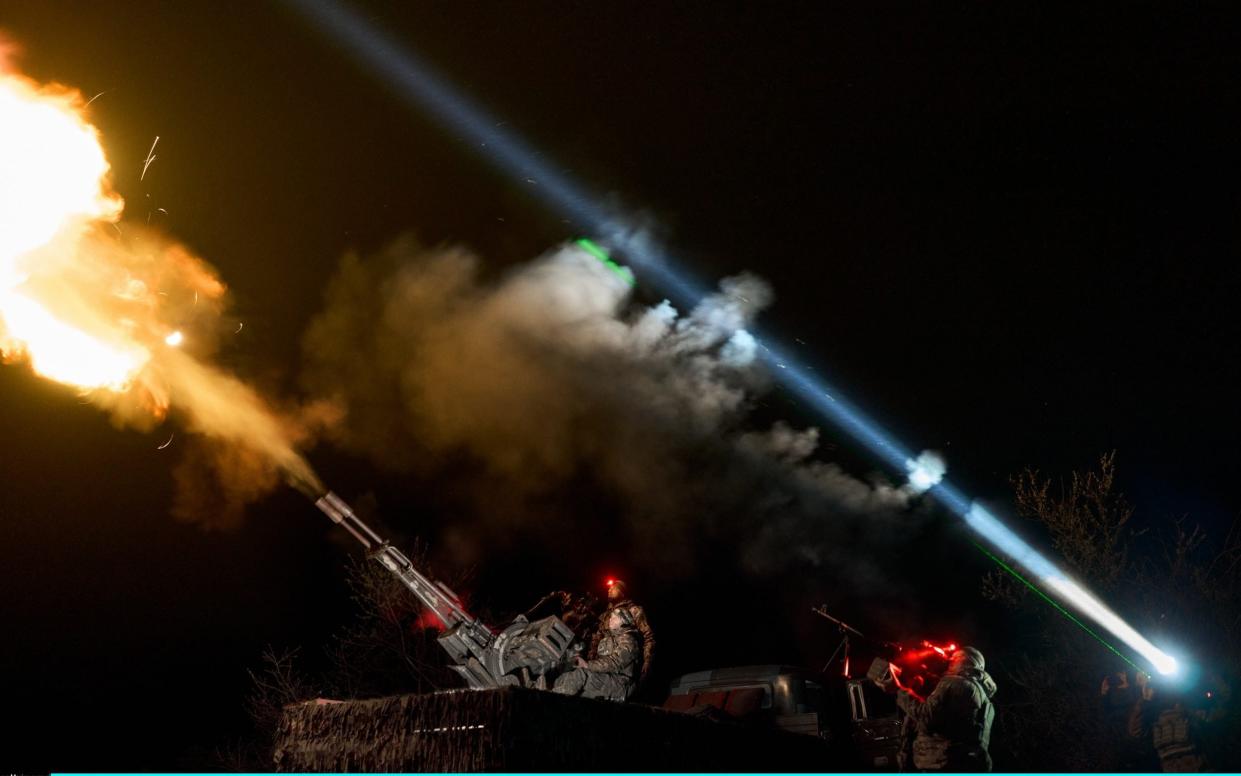Deaths of Russian soldiers surpass 50,000 in ‘meat grinder’ war

Deaths of Russian soldiers soared by a quarter in the second year of its “meat grinder” war in Ukraine, with reports that the toll has passed the 50,000 mark.
More than 27,300 Russian troops died in the second year of the conflict in a sign of the price paid in blood by Moscow for its illegal territorial gains.
Russian tactics have been likened to a meat grinder for their disregard for their soldier’s lives as they order wave after wave of men forward to expose Ukrainian troop locations and wear them down.
BBC Russian, Mediazona, an independent media group, and volunteers have been counting deaths since the start of the invasion in February 2022.
They reported the increase of almost 25 per cent after scrutinising open source information from official reports, social media and newspapers, even noting names on new graves in 70 Russian cemeteries.
Aerial photos showed that graveyards have been expanded to make space for soldiers killed in what the Institute for the Study of War described as “ineffective human-wave style frontal assaults” in battles for the Ukrainian cities of Vuhledar, Bakhmut and Avdiivka.
Russia’s prisoner policy
The 50,000 death toll is eight times higher than the only public confirmation of fatality numbers from Moscow in September 2022 but is likely to be smaller than the true amount.
The analysis does not include deaths of Kremlin-controlled militia in Russian-occupied Donetsk and Luhansk in eastern Ukraine.
The BBC estimated that at least two in five of Russia’s dead soldiers were not involved in the military before the war.
Volunteers, civilians and prisoners have been recruited to replace wounded or dead professional soldiers.
Their lack of experience makes them prime candidates for the simplistic meat grinder tactic, which is usually a front line assault with artillery support.
Prisoners were recruited for the Wagner group of mercenaries, until the failed mutiny led by its boss Yevgeny Prigozhin.
Russia, which has ordered one mobilisation of reservists since the war began, has continued the prisoner policy.
BBC analysis found that, under Wagner, former prisoners survived for an average of three months but inmates recruited by the defence minister only lived for an average of two months.
Volodymyr Zelensky said in February that 31,000 Ukrainian soldiers had been killed but other estimates suggest higher losses.
A Russian strike on the northern Ukrainian city of Chernihiv on Wednesday killed 11 people and 20 wounded more, as Kyiv again sounded the alarm over shortages in its air defence capabilities.
First responders searched for survivors in rubble, carrying away the wounded on stretchers as a pool of blood formed on the ground near the scene of the strikes, official images showed.
Mr Zelensky, who has been urging allies to send more missiles to thwart Russian air attacks, said Ukraine had lacked sufficient air defences to intercept the three missiles that struck Chernihiv.


